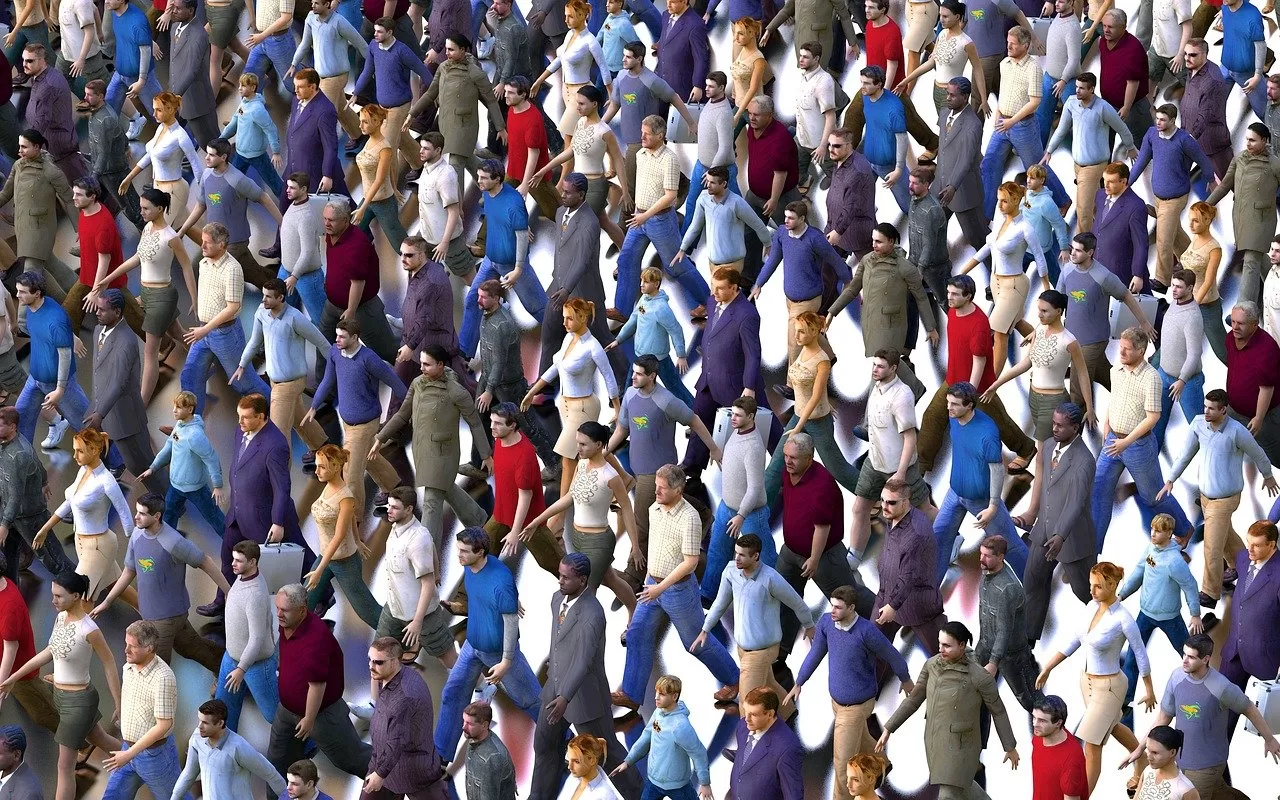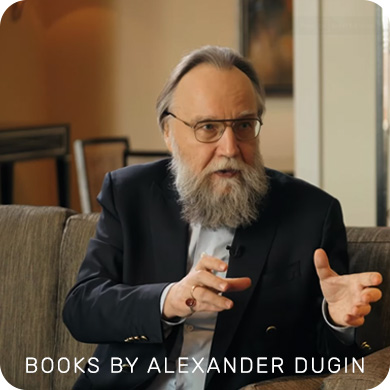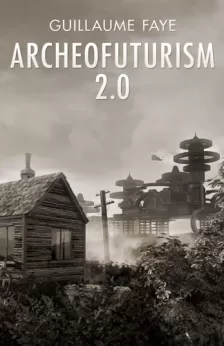Interview with Alain de Benoist given to the site Critique de la raison européenne (Critique of European Reason) about his book Contre le libéralisme (Against Liberalism)
The term ‘liberal’ appears totally overused in the current public debate. Could you define what the liberal project is?
Alain de Benoist: Like all words that have been used a lot (democracy, progress, etc.), it is difficult to give a definition of liberalism that would gain consensus. The difficulty is increased by the fact that, unlike Marxism, liberalism has had many ‘founding fathers’, and also that the link between economic liberalism, political liberalism, philosophical liberalism and ‘societal’ liberalism is not obvious to everyone. The liberal project, to use your phrase, is in my view a project that favours the individual over anything that exceeds him, relying on an anthropology that considers man as a being essentially driven by the desire to maximise his personal interest and private profit.
How does liberalism prevent the formation of a society that is not just a sum of individual interests?
It prevents it for the simple reason that any society is, in its eyes, just a sum of individual interests. From the perspective of liberal ideology, it’s no longer society that comes first but the individual. Societies, peoples, nations, cultures, etc. have no existence as such: they are only aggregates of individuals. These individuals are seen as fundamentally self-sufficient, owners of themselves, capable of constructing themselves from nothing – outside of any pre-existing context – without their choices owing anything to affiliations that predate them. This is the sense in which Margaret Thatcher could claim that ‘there is no such thing as society’. This view, which directly contradicts the idea, at least as old as Aristotle, that man is a social political animal, is obviously antagonistic to any idea of common good. From a liberal perspective, the general interest is defined as a sum of individual interests which are arbitrarily assumed to be able to harmonise spontaneously or solely as a result of legal relations and market mechanisms. Liberalism consecrates the reign of the non-common.
According to the prevailing discourse today, liberal freedom is the only possible form of freedom. However, there are other ways of conceiving freedom in the history of ideas. Could you give some examples?
Liberal ideology does not want to know of any freedom other than individual freedom. Anything that exceeds individual freedom is seen as a potential threat to the rights of individuals, the first of these rights being in a way the right to have rights. This is clearly evident in the way liberalism opposes politics, whose authority it always seeks to limit, particularly with regard to the economy. Historically speaking, the reign of liberal ideology is inseparable from the rise of the bourgeois class and values, which claimed to remove all obstacles that might hinder trade and the production of goods. This conception of freedom is unique to liberalism. Fortunately, there are (many) others. I will give two examples. The first is the well-known opposition, developed in his time by the very liberal Benjamin Constant, between the ‘freedom of the Ancients’ and the ‘freedom of the Moderns’. The former was defined as allowing all citizens to participate in public affairs, while the latter, on the contrary, allows individuals not to participate and to evade civic obligations in order to seek their fulfilment in the private realm. The second example is that of ‘republican freedom’ as conceived by a line of thought from Livy to Harrington, via Machiavelli. Its main characteristic is to link individual freedom and collective freedom: I cannot consider myself free if the country to which I belong is not free. Freedom is therefore called upon to articulate with the common, which liberalism completely ignores.
In The Great Transformation, Karl Polanyi explains that the emergence of the nation-state allowed the triumph of market logic and the destruction of organic structures and solidarities. Yet, the nation-state seems today to be the only scale at which something of politics remains and one of the last frameworks of resistance to financial capitalism. We at Critique of European Reason believe that it must therefore be defended. How do you position yourself on this debate?
You are not wrong to think that, under the present circumstances, the nation-state must be defended, but I would add that it must be defended as a stopgap. Indeed, we should not be under any illusions. The sovereignty of nation-states today is hanging by a thread! Large portions of sovereignty have been taken away from them in the context of European construction, without these parts of sovereignty being transferred to a higher level (Europe has not been built as a power but as a market). On the other hand, the recent evolution of nation-states attests that those who lead them – or rather administer or manage them – are themselves largely won over by liberal ideology. This is why liberals, after fiercely fighting the influence of the state, often now expect it to contribute itself to creating the most favourable circumstances for the free development of markets, the implementation of rights ideology, etc. Public authority is then reduced to ‘good governance’, which models the government of men on the administration of things, claiming that political problems are ultimately only ‘technical’ problems, for which there is only one optimal rational solution (‘there is no alternative’).
Is there a link between liberalism and the ‘ideology of sameness’ that you decry? Does liberalism contribute to the disappearance of otherness and the advent of what Czech philosopher Jan Patočka calls the ‘closed soul’?
I believe liberalism indeed contributes to the disappearance of otherness, firstly because it recognises only individual differences, not collective ones, and secondly because its individualistic foundations inevitably go hand in hand with a de facto universalism, in which all humans are fundamentally the same. The simple act of abstracting a man from his affiliations to create a man from everywhere and nowhere shows that from the liberal theorists’ perspective, collective differences between peoples, nations, or cultures can only be secondary, superficial, or transient. We may appear different, but deep down, we are the same! That’s why liberalism believes that a good constitution is good for all peoples, as Condorcet stated, that the entire world can be transformed into a vast global market governed solely by market laws, and that human rights are valid at all times and in all places, etc.
Liberal democracies are currently going through a profound crisis. The emergence and rise to power of so-called populist movements, as well as the mobilisation of the yellow vests or the appearance of dissenting voices in the media, the associative world, and the university, clearly demonstrate this. Would you agree that liberalism is a declining ideology?
I wouldn’t yet say that liberalism is declining, but that it is in crisis, and this crisis is likely to herald its decline. The crisis in question affects both political institutions and the capitalist economic system. Liberal democracy, based on the ‘rule of law’, which many considered unsurpassable, is collapsing due to widespread distrust among society members. It was both representative and parliamentary. However, people are realising that representatives no longer represent much and that parliamentary sovereignty has replaced popular sovereignty. Consequently, the terms ‘democracy’ and ‘liberalism’ are no longer synonymous; we are rediscovering that they correspond to completely different things. Democracy places legitimacy in popular sovereignty, while liberalism sets conditions for the democratic game by placing ‘rights’ above the people. People no longer trust parties, and it is significant that the Yellow Vest movement has emerged outside of both parties and unions. The crisis of liberal democracy initially fuelled abstention, after which it fostered the rise of so-called ‘populist’ movements, which are undermining the old traditional ‘government’ parties, which are collapsing today like houses of cards. As these parties were the essential vectors of the left-right horizontal divide, a new vertical divide appears, which pits the working classes and the downwardly mobile middle classes against the bourgeois block of globalised transnational elites (see the work of Christophe Guilluy and Jérôme Sainte-Marie, to name just a couple).
But the capitalist system itself is threatened by its internal contradictions. The pursuit of productivity gains required by competition leads to producing more goods and services with fewer people. The omnipotence of money, which initially favoured the credit system, has led to widespread debt that has now reached unprecedented heights. Capitalism has lost its former national moorings to become purely speculative and completely deterritorialised. Adding to this are ecological issues (it is no longer possible to believe that natural reserves are inexhaustible and free). Many observers today anticipate a new global financial crisis much more severe than that of 2008. I can only touch on the subject here, but the concurrence of these two major crises, one political, the other economic, naturally anticipates decisive shifts in the coming years.
We believe in our association that power is won through ideas. Which key intellectual figures would you recommend to rely on to fight the cultural battle against liberalism?
I wish power was won by ideas! The problem is that the way ideas exert influence and eventually prevail is anything but simple. Politicians don’t like ideas much because they want to unify while ideas divide. That’s why they are only interested in ideas when they can use them to their advantage. And it’s also why, after sometimes trying to have the strategy of their ideas, they often end up only having the ideas of their strategies. That said, I do agree with you that nothing replaces the battle of ideas. As for recommending specific intellectual figures, I prefer to abstain: there are too many! Refer, if you wish, to the authors whose works I present in my book Ce que penser veut dire (What Thinking Means), recently published by Editions du Rocher. There are undoubtedly many sure values that you already know: Jean-Claude Michéa, Christopher Lasch, Jean Baudrillard, Louis Dumont, Julien Freund, Carl Schmitt, Heidegger, and so many others.
For now, no alternative emerges beyond the local scale. Isn’t the degrowth you wish for unsellable (to populations who remain largely attached to consumer society) and utopian considering the economic forces at play?
You are not wrong: degrowth is quite ‘unsellable’ to many people, and even more so to politicians who all compete in pretensions to ‘revive growth’! This may seem despairing, but the correctness of an idea does not depend on the reception it may receive at any given time. If the theory of degrowth is correct, if it is well-founded, it will eventually impose itself when it becomes impossible not to consider this option. It is likely that we will then regret not having considered it sooner, which would have avoided catastrophic turns. The theory of degrowth says that the current system is no longer reformable, that it is heading for a wall. If the wall is indeed there, it is not at all utopian to say that it actually exists!
According to Régis Debray, those who have supported the project of European construction since World War Two believe that ‘the characteristic of Europe is not to have any characteristic’. As Europe surrenders to nihilism and self-forgetfulness, could you reflect on what underpins the European sentiment and the identity of Europe?
Régis Debray’s view, I believe, is shared by many others. The fact is that everything seems to suggest that Europe somehow wants to shed itself. The controversy recently sparked by the appointment of a European Commissioner in charge of the ‘protection of the European way of life’ is telling. A European way of life, what could that possibly mean? Just as significantly, the controversies only subsided when it was painstakingly explained that the ‘European way of life’ actually involves accepting all other ways of life (how simple it was)! Europe wants to have nothing specific that could serve as a model because it sees itself as a bearer of ‘universal values’ which, coincidentally, are also liberal values. Being ‘universal’, they too are from everywhere and nowhere. By presenting itself as ‘open to openness’, i.e., open to everything, the European Union admits its impotence and its submission to the dominant ideology. It is all the more necessary, indeed, to reaffirm a European sentiment that can be part of a historical continuity linking the past to the future. Europe is a history associated with a territorial space. Its identity is grounded in the community of belonging and origin of most of the countries that make it up. But this identity should not be essentialised: it is a substance, not an identity. Identity is not what never changes but what allows us to change all the time while remaining ourselves. Nietzsche said that one ‘does not bring back the Greeks’; however, one can take them as an example to be as innovative as they were in their time. In the end, identity is not so much what one is as what one does with what one is.
To conclude on a current note, the march against Islamophobia two weeks ago once again highlighted the extent of French divisions and the growing cultural secession of a part of the French population of Muslim faith. What can we still rely on to resist the rise of Islamism, beyond hollow incantations about the ‘values of the Republic’?
The strength of Islamism is only a reflection of our weaknesses. It is useless to deplore the evident ‘growing cultural secession of a part of the French population of Muslim faith’ if we ourselves are unable to revive a social bond carrying shared values. This is precisely where we encounter liberalism, which is one of the main culprits in the destruction of the old organic structures. The society of individuals is a fractured, eroded, atomised society, where people live in both increasing solitude and a ‘war of all against all’. It is a society of lack, a society where the pleasure principle has overtaken the reality principle. To face the threats that loom, it involves ending this society and rebuilding ourselves.










We can either defend the nation-state or if lost, work on establishing new nation states. I prefer the second option!
This is the only de Benoist book I haven’t read…
Alain de Benoist is a coward. Not a warrior bone in his body.
There are many better voices out there.
Faye was right about him!
I’ve read about some of the instances you are hinting at. If true, really embarrassing.
While there are many priorities for anti-globalists, the deconstruction of liberalism should be one of them. Especially in the United States, where many cannot imagine a political order other than liberalism. I believe deconstruction of liberalism on the American front, the heart of the liberal-globalist world order, will be needed in order to liberate Europe from liberalism. Europe is currently under the American yoke and that must be broken. Ending liberalism in America will cause a domino effect throughout the rest of it’s global empire.
Good analysis, I agree.
I think the USA is the only one who really believes in this shit. The rest are either bribed or threatened into following them.
Nah, the UK is just as bad in every way. France is quite close too. And don’t forget the weirdo super liberal Nordic countries!